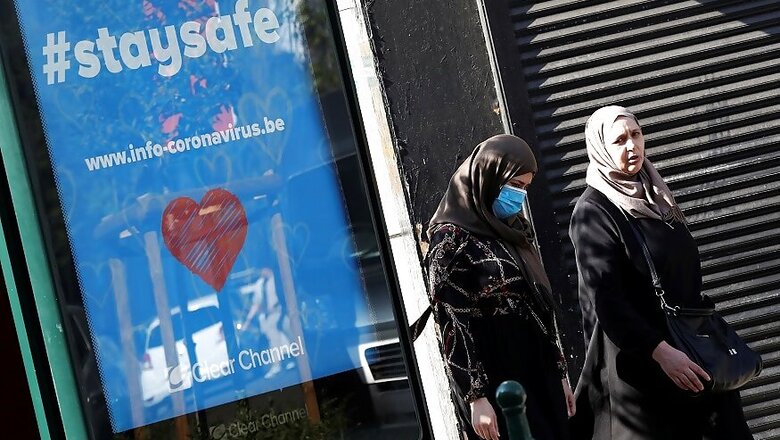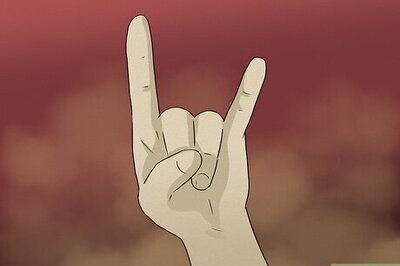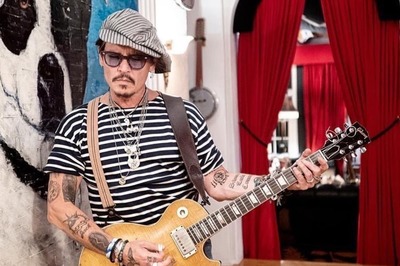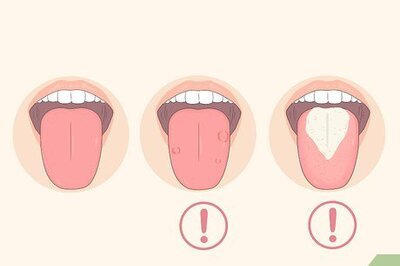
views
While face coverings are fast becoming the norm to slow the spread of the novel coronavirus, visible on city streets and public transportation everywhere, the global politics that surround them are more complicated than ever — a reflection not just of this current crisis, but also of broader values and stereotypes.
This is especially true in the European Union, where the laws informally known as “burqa bans” that forbid full-face coverings, often on the basis of public safety, are being called into question.
Suddenly the niqab, or full-face veil, has a whole set of new, more communal, associations; and various legal establishments are gearing up to challenge the current status quo.
“It’s a big contradiction,” said Alia Jafar, a British schoolteacher in Riyadh, Saudi Arabia, of the many face covering laws, which differ by country — especially because, to avoid charges of discrimination, the legal wording of most burqa bans is often framed more neutrally to apply to both men and women hiding their faces.
Recently, inspired by the global surge of face coverings, Jafar posted a picture on social media, which she shared with The New York Times, of two women in the street during the 1918 Spanish Flu pandemic. Both wore wide-brimmed hats, pulled low, with scarfs tied across their faces. Only their eyes peeked through.
“It looks like the burqa,” Jafar said, by telephone. The implication being that things are not that different today. In the street, many wear baseball caps with bandannas across their faces.
Yet this week France stood firm on its ban, which prohibits the wearing of clothing intended to hide the face in public spaces, despite the fact that masks are now being required on public transportation and in high schools. The French interior ministry confirmed to The Times that the face coverings rule of 2010 would stay in place. (A separate 2004 ban prohibits headscarves in public schools, referring to the religious neutrality of state institutions.)
There you go — you were objecting to this last year, and now you are joining in with me. You can see that the supposed security threat all of a sudden has ceased.
The result is a Catch-22. Those who do not wear a mask can be fined, as can those who violate the face-covering law.
While some European countries, such as France, have exceptions to their bans that allow for face coverings for “health” reasons, confusion remains about what counts as an acceptable coronavirus face mask.
France has offered no formal specification. A spokeswoman for the Ministry of the Interior said, in an email, “It is common sense without legal definition.” The situation is further complicated by a worldwide shortage of personal protective equipment (PPE), which has many people turning to existing items found at home for coverings.
When contacted, multiple human rights lawyers referred to the situation in France as “ridiculous.” Yet it is not unique. Many European countries are now requiring the wearing of face masks despite their concurrent bans on face coverings.
In Belgium, a law passed in 2011 bans the wearing of clothing in the street that obscures one’s identity. Yet now, because of the coronavirus, masks are compulsory on public transportation and “strongly encouraged” in other places.
In the Netherlands, citizens are now required to wear masks on trains and buses. Yet last year, a law came into effect banning face coverings on public transportation, in hospitals and in schools.
In Austria, face masks are now compulsory in shops and on public transportation, yet in 2017 a bill was passed prohibiting face coverings in public spaces. There are similar situations in Denmark, Bulgaria and certain parts of Italy, Spain and Germany.
“Face masks are now seen as a social measure for protecting people, yet still niqabs are treated as an anti-social act,” said Asima Majid, a British Muslim, who currently wears a hijab (the Muslim head scarf), but has worn a face veil in the past. She reached out to other Muslim women via WhatsApp to ask about their experiences.
One, Maryam (she asked that only her first name be used), told The Times that she felt “personally attacked” by the bans. The spread of face coverings during the pandemic has made her feel “victorious.”
“There you go — you were objecting to this last year, and now you are joining in with me,” she said. “You can see that the supposed security threat all of a sudden has ceased.”
Indeed, the justifications for face-covering bans — that there is safety in being able to see people’s faces — are now unsettled. When contacted, several lawyers in Europe argued that the current situation makes such burqa bans unenforceable. “Given circumstances we live in now, the law is de facto not applicable,” said Rupert Wolff, the president of the Austrian Bar.
Satvinder Juss, a lawyer in London and a human rights expert, said that Europe’s burqa wearers are now, legally, on much “firmer ground” given the newly publicized health guidance around face coverings.
Juss said that if a French police officer were to single out and challenge a woman for wearing a burqa or niqab in public, since she would potentially be surrounded by others wearing home-sourced face coverings, the officer would “clearly be engaging in religious discrimination and sex discrimination,” which is forbidden under the European Convention of Human Rights.
In 2014, Juss represented a 24-year-old French Muslim who appealed France’s face-covering ban at the European Court of Human Rights in the case of S.A.S. v. France. While the court rejected France’s arguments for the ban for public safety reasons (as well as the protection of human dignity and gender equality), it ultimately upheld the ban, accepting the vaguer aim of “vivre ensemble” (living together). This justification holds that a concealed face inhibits the right of citizens to easily socialize and coexist.
Given that many people in France are rapidly becoming used to seeing people from all walks of life covering their noses and mouths, however, Juss believes the “living together” justification no longer stands.
Belgium finds itself in a somewhat different position. Its face-coverings ban, which involves punishments of up to seven days in prison, makes no allowances for someone wearing a covering for health reasons, unlike most other European bans. The only exceptions are work, “festive events” or other, overriding laws, like those related to motorcycle helmets.
The country is currently in a state of emergency, which has given the government special powers to pass decrees, and it has made wearing a mask (or an alternative, such as a scarf) mandatory on public transportation.
Yet, no such allowances exist for those wearing masks in the street or other public spaces — a legal situation that Isabelle Rorive, a founder of the Equality Law Clinic at the University of Brussels, described as “bizarre.”
In the Netherlands, Tom Zwart, a professor of cross-cultural law at Utrecht University, used the word “hypocrisy” to characterize his country’s situation. The Dutch government bans face coverings, except for “health and safety,” but Zwart believes it is on shaky footing.
“Masks are not available,” Zwart said. “The prime minister even said to make one yourself, use a shawl or something else. So, if you have a burqa or a face veil, why not use that to protect yourself and others against the coronavirus? You are doing exactly what you’ve been told to do.”
In simultaneously enforcing masks for safety while also banning other face coverings, he said, with a laugh, huge swaths of the population are unwittingly breaking the law despite following the government’s new advice.
It is “very ironic,” said Karima Rahmani, the chair of group of more than 70 niqab-wearing women in the Netherlands called Blijf van mijn Niqaab (“Don’t touch my niqab”), who believe the burqa ban has fostered divisions and oppresses women.
The government, she said, was “talking about my niqab for years and years and making it a problem, coming with all kinds of arguments about how I’m dangerous, and disconnected from society, but they are all wearing masks now.”
Now, she said, she has noticed a slight public shift as others cover their faces. “Since the outbreak, there haven’t been people swearing at me in the street,” Rahmani said. “And I was used to being sworn at every day. People normally look at me angrily, but I have seen a change in their eyes. I can only hope that after all of this we can come together, and speak about their experience with face veils being everywhere now.”
E. Tendayi Achiume, the United Nations special rapporteur on contemporary forms of racism, said she hopes that as wearing masks for the sake of goodwill becomes normal, people will pause to think about how fear helped justify the passage of burqa bans.
“The political construction of the idea that face veils are something that are threatening to a nation, to a culture, to a society, has now been confronted,” she said.



















Comments
0 comment